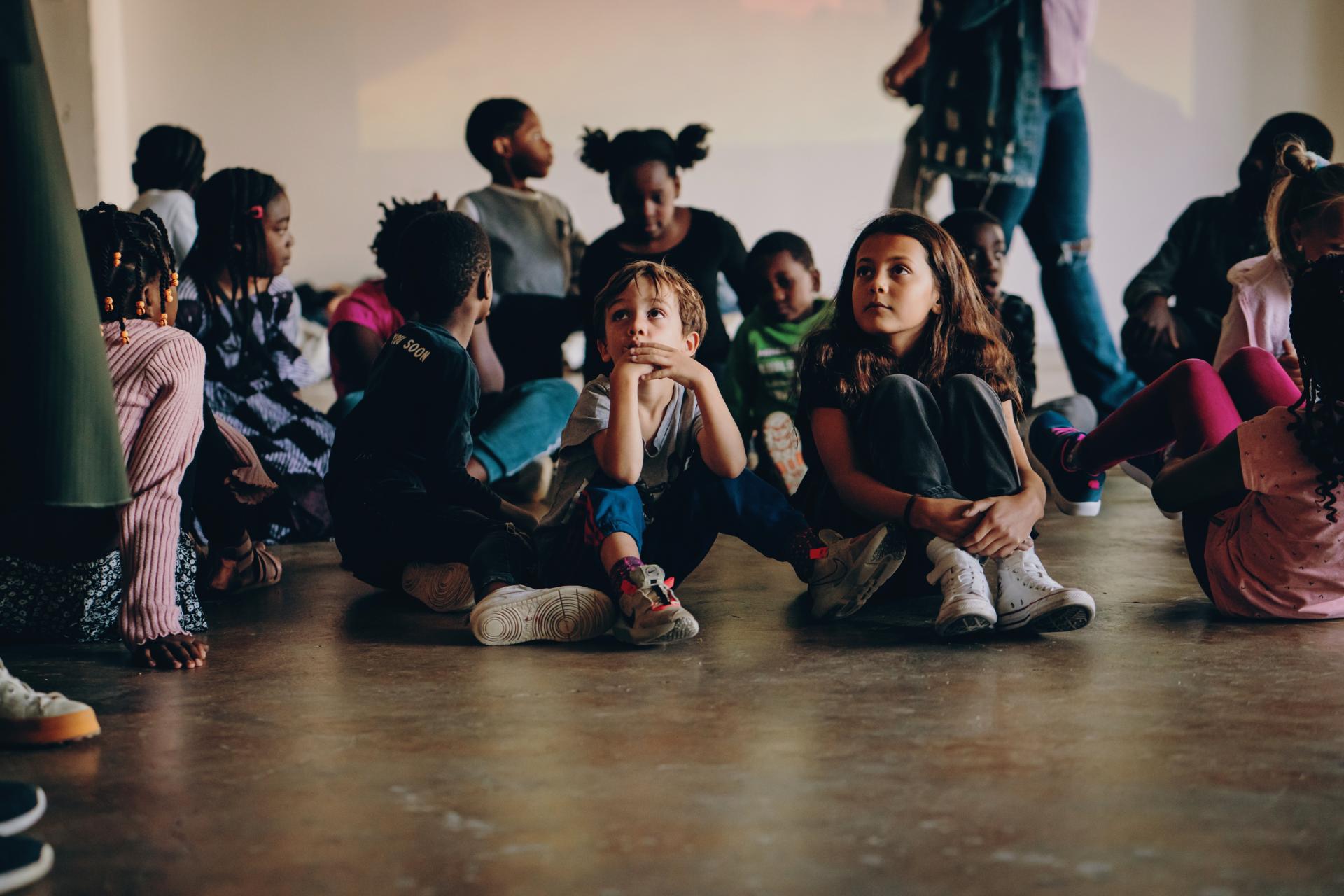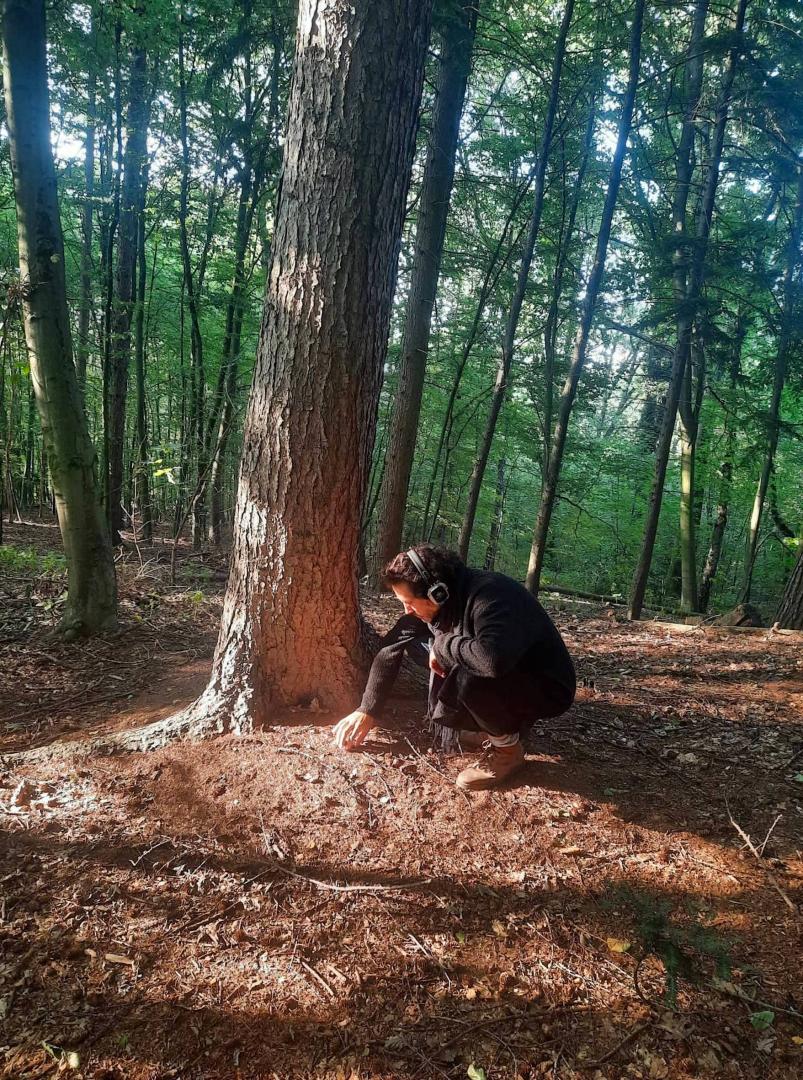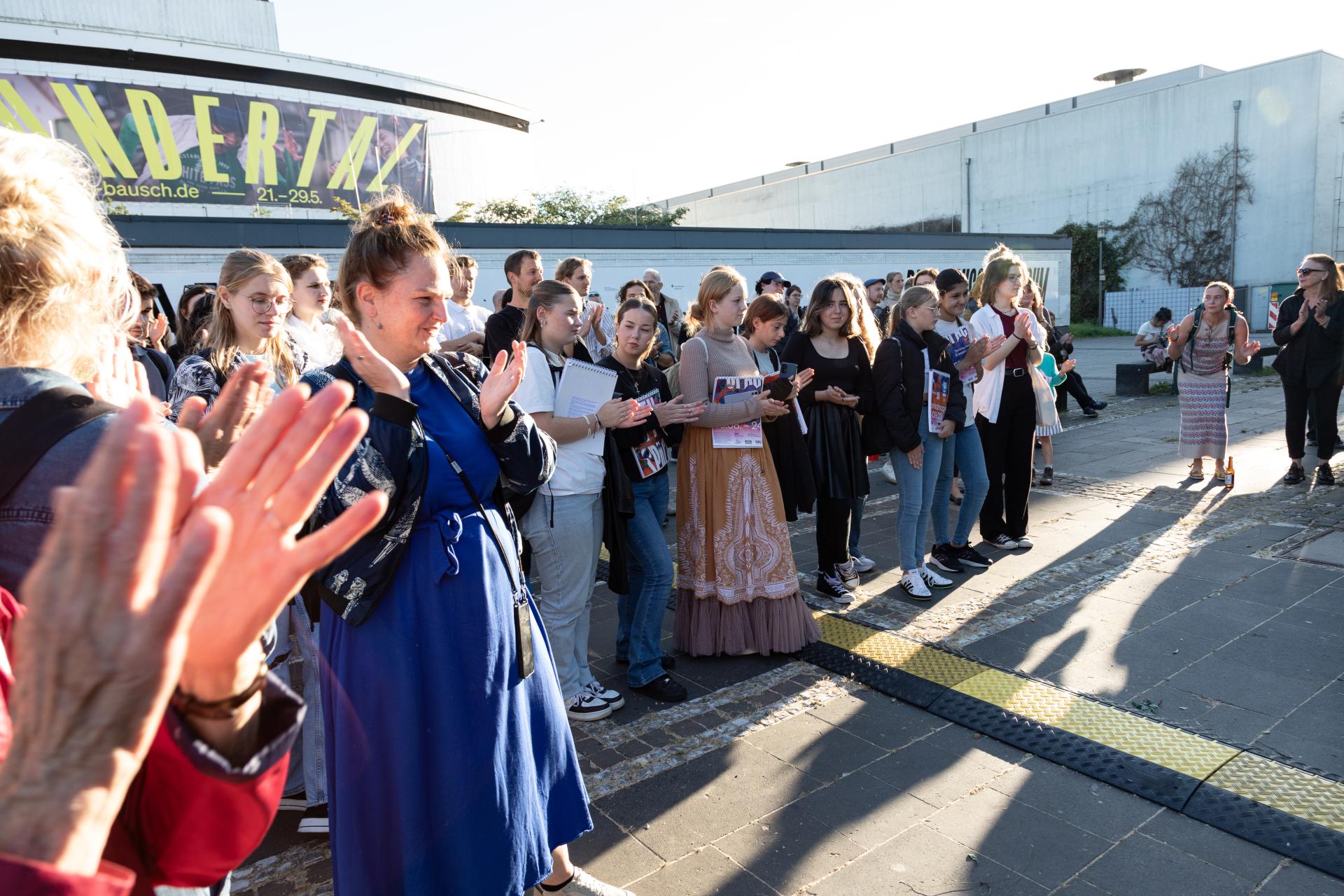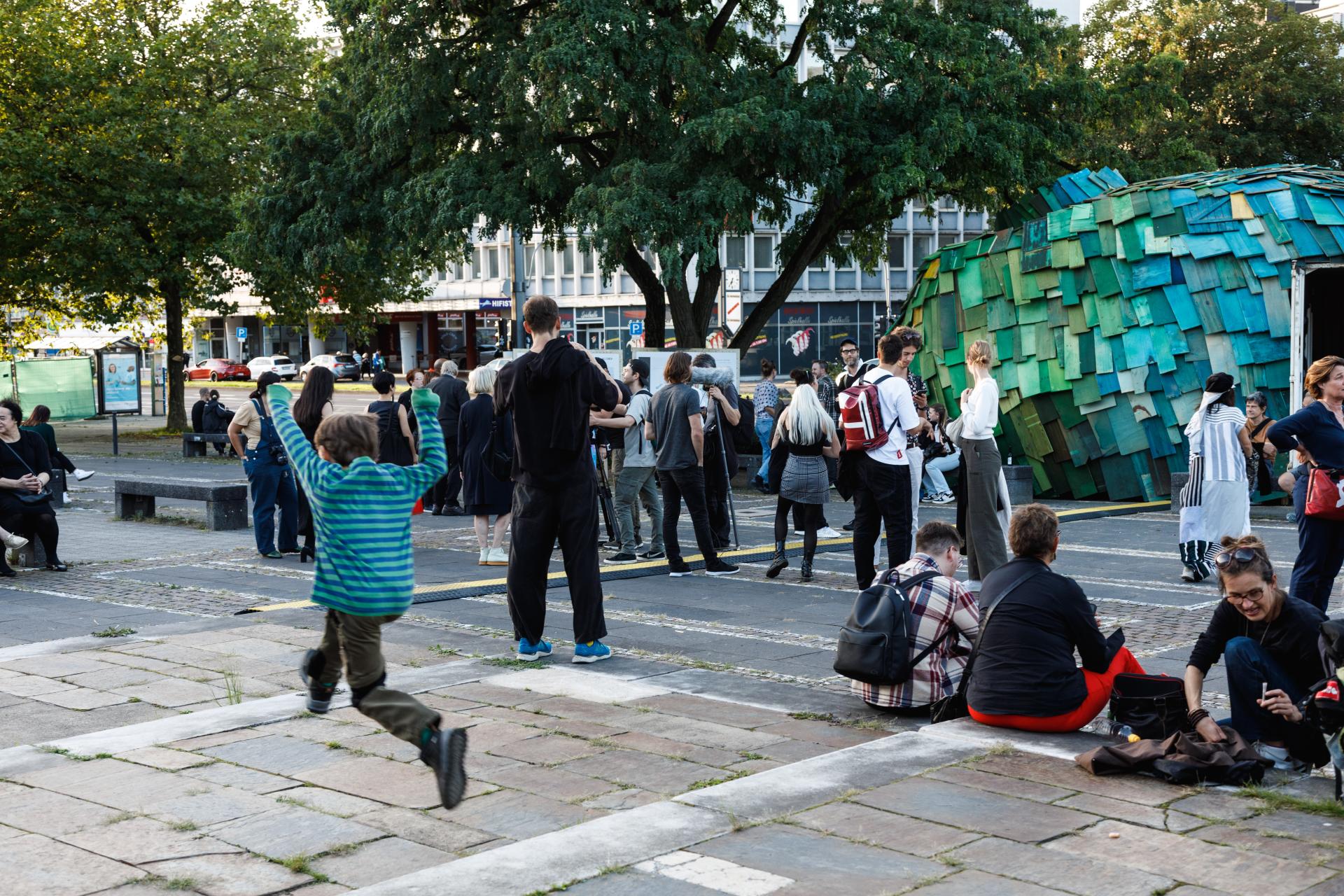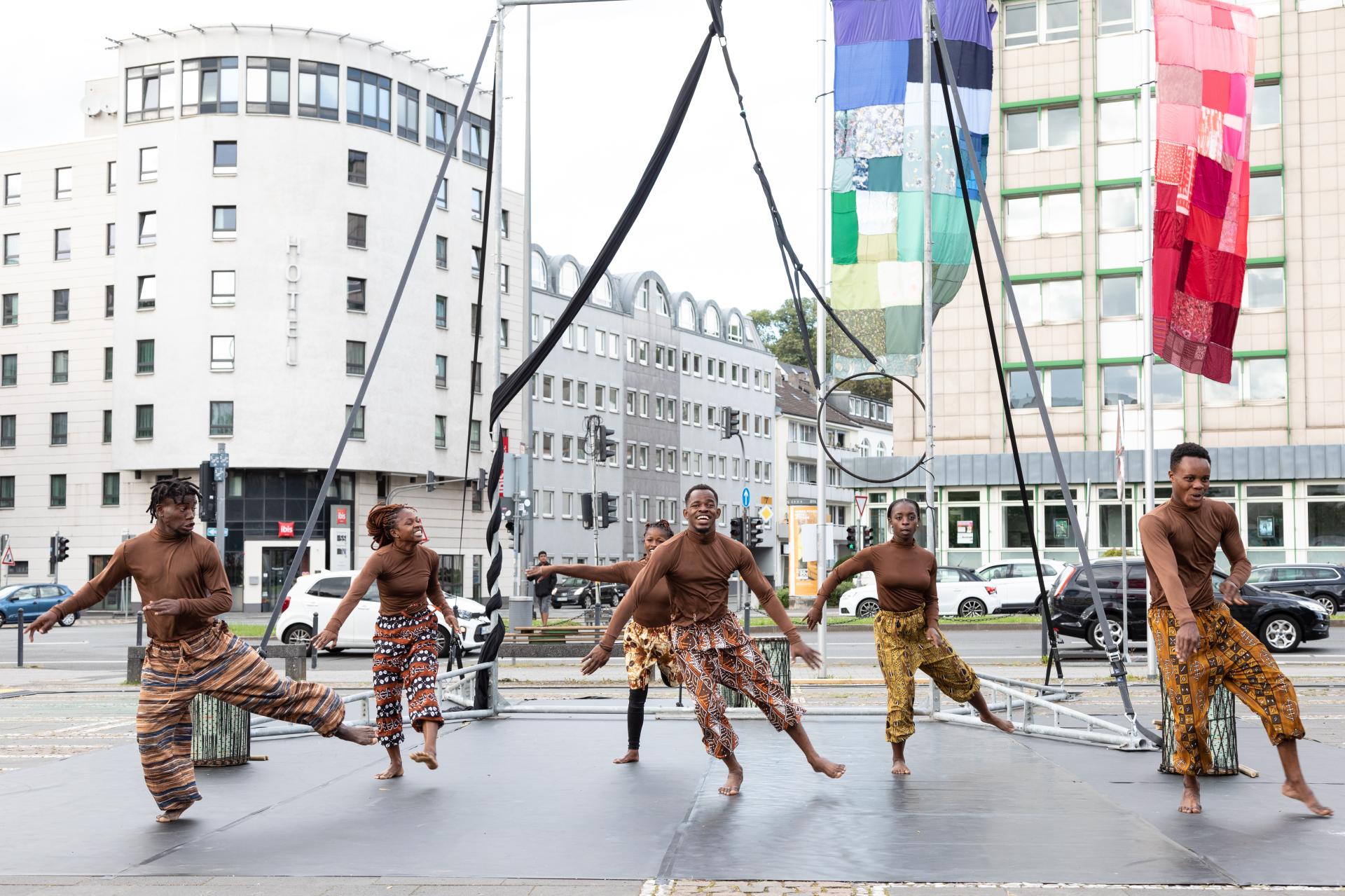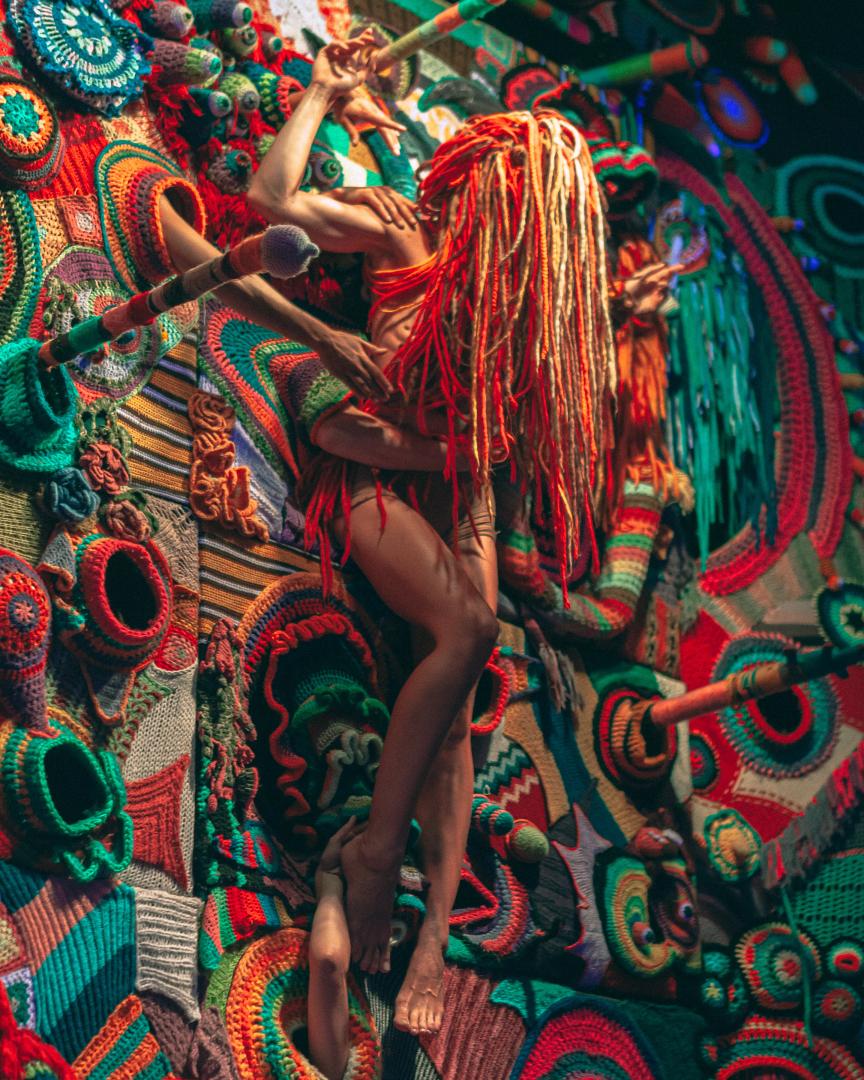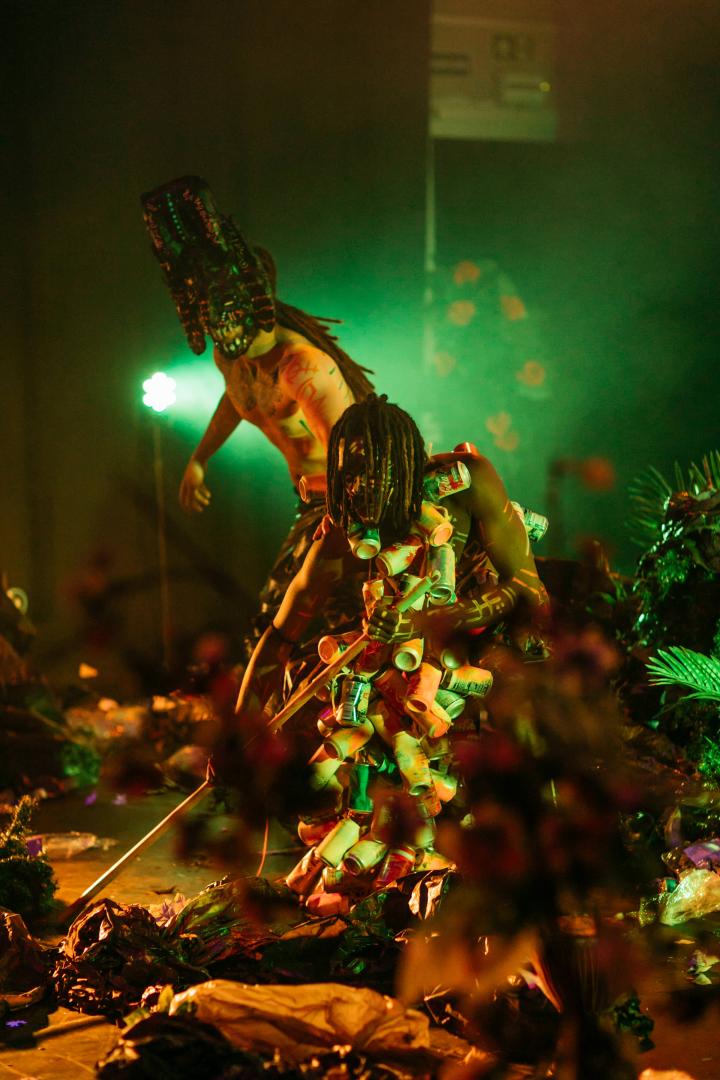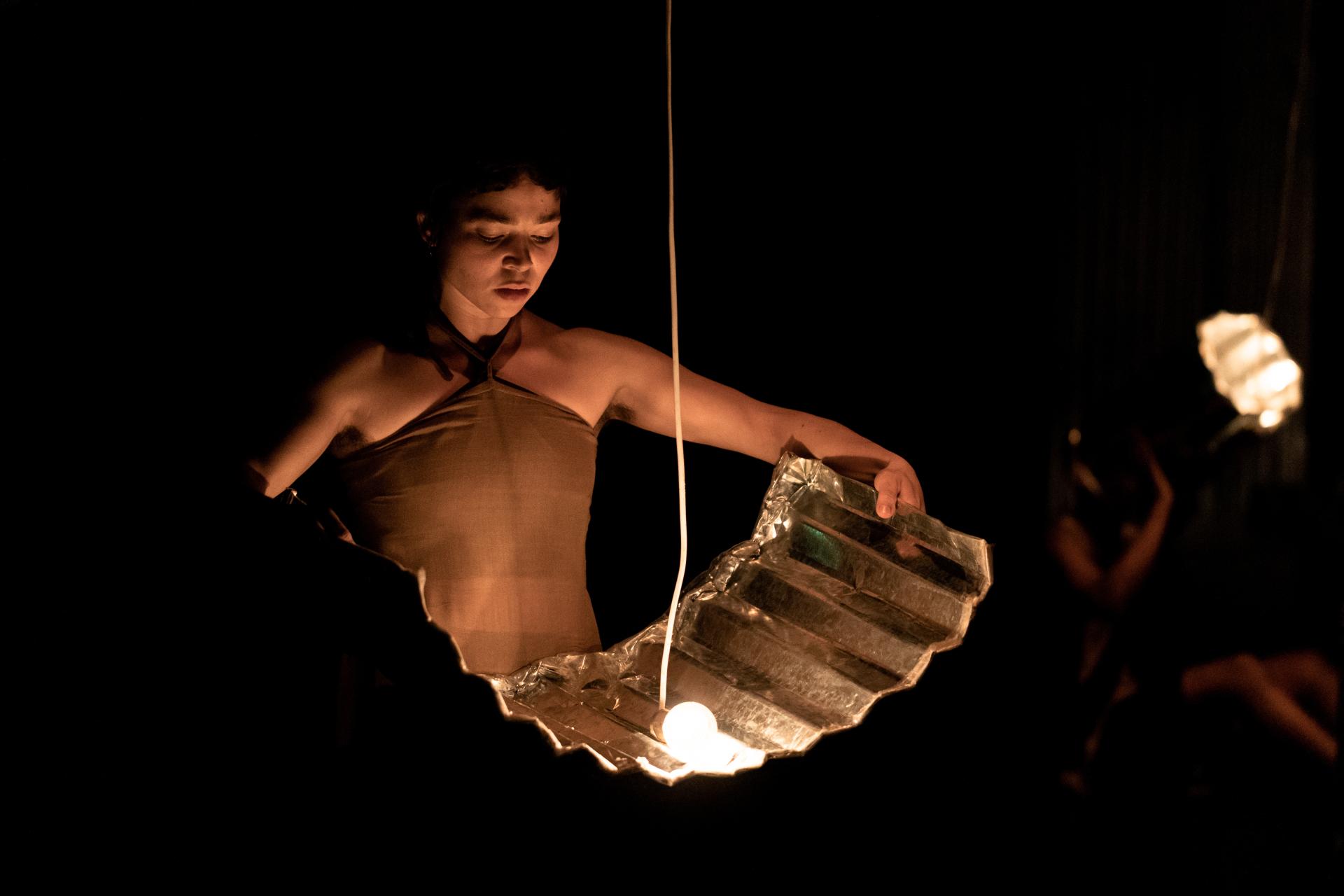FRAGILE
Basic information
Project Title
FRAGILE
Full project title
FRAGILE - Festival for young change makers
Category
Reconnecting with nature
Project Description
From September 20 to October 1, 2023, for the first time "FRAGILE - Festival for young changemakers" took place in Wuppertal, an international festival for young DanceMusicTheater on perspectives of sustainability. FRAGILE presented exciting productions around the themes of ecological, economic and social sustainability - for young people and for an intergenerational audience from 0 - 99. We offered space for exchange, experience, encouragement, to get into action - we need global empathy!
Geographical Scope
Regional
Project Region
Northrhine-Westfalia, Wuppertal, Germany
Urban or rural issues
It addresses urban-rural linkages
Physical or other transformations
It refers to other types of transformations (soft investment)
EU Programme or fund
No
Description of the project
Summary
FRAGILE presented exciting international dance productions – for young people and for an intergenerational audience. How can the stage become a field of experimentation for sustainable practices? What special powers do different formats – from dance to performance, workshops to debates, seeing dance and dancing yourself – have in fostering global empathy? In view of our current challenges, empathy is needed now more than ever!
The pieces were selected by a jury that included members of Fridays for Future Wuppertal, the curators Melanie Zimmermann and Tobias Staab, and the director of the preparatory phase of the Pina Bausch Centre, Bettina Milz. The wide-ranging programme addressed the challenges of collaborating internationally in a sustainable way, and thus offer new perspectives on how to build alliances, express unity and explore new narratives, spaces, materials and production methods. The concept of climate neutrality and the fight for biodiversity not only underpins the productions themselves, but the entire festival organisation. The festival offered an experiential space for young people to explore the theme of sustainability in all its complexity. Dance and performance make contradictions visible and tangible, opening up new perspectives. We want to be encouraging! It’s all about taking action together, rather than burying our heads in the sand in despair. Social, ecological and economic aspects of sustainability are closely interrelated – as is made clear, for example, by the UN’s 17 goals for sustainable development, which range from ‘no poverty’ as a first goal to ‘quality education, ‘climate action’ and ‘responsible consumption’. The program is published on 02 August, the World Overshoot Day 2023, that is calculated yearly by the Global Footprint Network. It marks the date when humanity’s demand for ecological resources and services in a given year exceeds what Earth can regenerate in that year.
The pieces were selected by a jury that included members of Fridays for Future Wuppertal, the curators Melanie Zimmermann and Tobias Staab, and the director of the preparatory phase of the Pina Bausch Centre, Bettina Milz. The wide-ranging programme addressed the challenges of collaborating internationally in a sustainable way, and thus offer new perspectives on how to build alliances, express unity and explore new narratives, spaces, materials and production methods. The concept of climate neutrality and the fight for biodiversity not only underpins the productions themselves, but the entire festival organisation. The festival offered an experiential space for young people to explore the theme of sustainability in all its complexity. Dance and performance make contradictions visible and tangible, opening up new perspectives. We want to be encouraging! It’s all about taking action together, rather than burying our heads in the sand in despair. Social, ecological and economic aspects of sustainability are closely interrelated – as is made clear, for example, by the UN’s 17 goals for sustainable development, which range from ‘no poverty’ as a first goal to ‘quality education, ‘climate action’ and ‘responsible consumption’. The program is published on 02 August, the World Overshoot Day 2023, that is calculated yearly by the Global Footprint Network. It marks the date when humanity’s demand for ecological resources and services in a given year exceeds what Earth can regenerate in that year.
Key objectives for sustainability
In a time of increasing global challenges it matters more than ever to understand sustainability as a cultural concept, that engages people, their competences and creativity for building a future worth living. Art and culture have the potential to elicit various possibilities for change and make them experienceable. “Only art can change life” is a quote attributed to Joseph Beuys. The cooperation with Pina Bausch Centre, Wuppertal Institute and FRAGILE was an offer for young people. We need a better understanding for global interdependencies, appreciation and a global empathy to move from knowing to acting and to shape a world, that is more fair in social-ecological terms. The second important partner in the project was Fridays for Future Wuppertal: “As we are approaching the tipping points of climate change, we are the first generation to really feel the consequences of global warming, and at the same time the last generation to be able to stop it.”
Key objectives for aesthetics and quality
Wuppertal welcomed around 90 international guests for the festival, who arrived from countries such France, Argentina, Italy, Mali, Cameroon, the Ivory Coast, Togo, Rwanda, Spain, Chile, Belgium and Germany. In different ways, they all reflected on the theme of sustainability – from an ecological, economic or social perspective. The Schauspielhaus and its forecourt were transformed into a public forum, where many people participated in discussions about values, new perspectives and questions of global responsibility. To conclude the FRAGILE festival, an apple tree was planted near the Schauspielhaus as part of Performance 4 Future’s initiative 7000 Setzlinge (7000 seedlings).
The response from the audience was very positive and also emotional. This was particularly evident in the enthusiastic audience reaction to the very young dancers of Compagnie Dumanlé from Abidjan, who performed their piece Sacred Forest on a six-metre-high circus rig on the forecourt of the Schauspielhaus, telling the story of an endangered sacred forest through urban dance, circus and acrobatics. The beauty of the forest and the important role it plays in our lives were also at the centre of another piece, the audio walk through the Barmer Wald :hearing the unknown by studio s:o:m. The festival’s opening performance by Michèle Noiret from Belgium combined dance and film to celebrate the fragility and peculiarity of insects. The giant crocheted coral reef in the production Organismo, by company Maraña and choreographer Paula Riquelme Orbenes, delighted audience members of all generations. The Afro-futurist production PL3MONS by the young Belgian company around Younes van der Broeck and Ramos Sama featured parasitic extraterrestrial creatures that take over our world in the future and find a host in plastic to wreak havoc and destruction on Earth. In Kolochi Baw, the Pina Bausch Fellow Aïda Colmenero Dïaz and the Cameroonian bio-architect Angel Fulla reflected on the Djenné Mosque in Mali.
The response from the audience was very positive and also emotional. This was particularly evident in the enthusiastic audience reaction to the very young dancers of Compagnie Dumanlé from Abidjan, who performed their piece Sacred Forest on a six-metre-high circus rig on the forecourt of the Schauspielhaus, telling the story of an endangered sacred forest through urban dance, circus and acrobatics. The beauty of the forest and the important role it plays in our lives were also at the centre of another piece, the audio walk through the Barmer Wald :hearing the unknown by studio s:o:m. The festival’s opening performance by Michèle Noiret from Belgium combined dance and film to celebrate the fragility and peculiarity of insects. The giant crocheted coral reef in the production Organismo, by company Maraña and choreographer Paula Riquelme Orbenes, delighted audience members of all generations. The Afro-futurist production PL3MONS by the young Belgian company around Younes van der Broeck and Ramos Sama featured parasitic extraterrestrial creatures that take over our world in the future and find a host in plastic to wreak havoc and destruction on Earth. In Kolochi Baw, the Pina Bausch Fellow Aïda Colmenero Dïaz and the Cameroonian bio-architect Angel Fulla reflected on the Djenné Mosque in Mali.
Key objectives for inclusion
We reached a great intergenerational audience. The school performances in the mornings were full, playing to very diverse groups of young people and many different school groups, including very diverse young people from vocational colleges, young people from the special needs schools and the JEKITS-programme at the music school. 15 young people from the Pina-Bausch-Gesamtschule acted as Young Change Watchers, accompanying all productions, moderating the post-show talks with huge professionalism and documenting their experience with pictures and collages.
The forum on sustainability was a much-visited part of the festival. The pavilion Symbiosen by raumlaborberlin, which was awarded the Golden Lion at the Venice Biennale in 2021, revitalised the public square in front of the Schauspielhaus. With the support of AWG Abfallwirtschaftsgesellschaft Wuppertal, an international team of around 20 artists and architects built a pavilion out of discarded timber and bulky waste. The central questions in this process were: What is a resource, what is waste, how do we value materials? The Grunchy Villa - open for everybody who dropped by - became a space for workshops and pre- and post-performance talks, where people also came together to paint chairs or create bags from old tarpaulins.
In OPEN SPACE, young people have been working together with Brazilian artist Milton Camilo to explore the many ways in which we as human beings can make ourselves heard artistically in society: How do people get into storytelling and who listens to them? Which (life) stories are heard and which voices are lost? How do we give space especially to those who are often rendered speechless? And how can we reinvent storytelling as an ancient custom between people? Painting, photography, dance, video and sound technology were explored in an open project workshop lasting several weeks. The collaborative project for young people will now be presented in a final installation.
The forum on sustainability was a much-visited part of the festival. The pavilion Symbiosen by raumlaborberlin, which was awarded the Golden Lion at the Venice Biennale in 2021, revitalised the public square in front of the Schauspielhaus. With the support of AWG Abfallwirtschaftsgesellschaft Wuppertal, an international team of around 20 artists and architects built a pavilion out of discarded timber and bulky waste. The central questions in this process were: What is a resource, what is waste, how do we value materials? The Grunchy Villa - open for everybody who dropped by - became a space for workshops and pre- and post-performance talks, where people also came together to paint chairs or create bags from old tarpaulins.
In OPEN SPACE, young people have been working together with Brazilian artist Milton Camilo to explore the many ways in which we as human beings can make ourselves heard artistically in society: How do people get into storytelling and who listens to them? Which (life) stories are heard and which voices are lost? How do we give space especially to those who are often rendered speechless? And how can we reinvent storytelling as an ancient custom between people? Painting, photography, dance, video and sound technology were explored in an open project workshop lasting several weeks. The collaborative project for young people will now be presented in a final installation.
Results in relation to category
Connecting to the 17 goals the impact we realized was for sure connected to 13 - climate action - but also to 17 - new partnerships - and issues in the other goals such as infrastructure, well-being, reducing inequalities. In the arts, it is always in a way difficult to point out the concrete results and outputs. But they are very obviously there. They may sometimes take time and develope. Studies show that especially for kids experiences connected to performances in a wider sense may give a strong support for the development of the personality.
We established a new festival, as far as I know the first festival in Germany, with is exclusively connected to the issue of sustainability. Also on an international level I know festivals, that include sustainability, but very few that focus completely on it.
We got a fantastic feed back from out audience and from all the institutions and artists that were involved. The "soft skills" or a s we name it the "handprint" in the work on transformation to a more sustainable world is extremely important in our eyes. The festival combined handprint and footprint. We had to make an analysis on our footprint. Knowing all this data-material is a very good base to change your way of thinking and deciding in every step.
The main benefit should be for all the young people that came to watch the performances and take part in the projects. I think we could encourage them to feel that it is worth to engage and get into action. And we established a great exchange between generations and cultures.
We established a new festival, as far as I know the first festival in Germany, with is exclusively connected to the issue of sustainability. Also on an international level I know festivals, that include sustainability, but very few that focus completely on it.
We got a fantastic feed back from out audience and from all the institutions and artists that were involved. The "soft skills" or a s we name it the "handprint" in the work on transformation to a more sustainable world is extremely important in our eyes. The festival combined handprint and footprint. We had to make an analysis on our footprint. Knowing all this data-material is a very good base to change your way of thinking and deciding in every step.
The main benefit should be for all the young people that came to watch the performances and take part in the projects. I think we could encourage them to feel that it is worth to engage and get into action. And we established a great exchange between generations and cultures.
How Citizens benefit
An accompanying programme of enriching “humus” events included the bicycle repair workshop Mirker Schrauba, lessons in how to build insect hotels and opportunities for upcycling. The Community Space offered a programme of films and materials from the Wuppertal Institute for Climate, Environment and Energy to reflect, inspire and relax. Video installations showed footage from the projects Vintage Dance by Annika Kompart and Letters from Wuppertal, the documentation of a Tanzrauschen workshop with the choreographer Jo Parkes. Many participative workshops offered occasions to take part for citizens. Susann Tonne transformed old clothes into large beanbags, using a weaving loom made from the spokes of old bicycle wheels. Dr Holger Kreft from Scientists4Future playfully explored the theme of sustainability through a game of musical chairs. The Food-Sharing-Station and Clothes Swap were also very popular. And last but not least, there was lots of dancing.
Physical or other transformations
It refers to other types of transformations (soft investment)
Innovative character
The wide-ranging programme addressed the challenges of collaborating internationally in a sustainable way, and thus offer new perspectives on how to build alliances, express unity and explore new narratives, spaces, materials and production methods. The concept of climate neutrality and the fight for biodiversity not only underpins the productions themselves, but the entire festival organisation.
We believe that the role of art and culture is very important in the big necessary transformation process into a more sustainable world. The festival offered shared space and time for the reflection on values, on resources, on our attitude towards nature and the fact, that it is our common base of living that we have to protect. We tried to get away from the discourse of renunciation to a more encouraging attitude. The performances were not supposed to draw a dystopian picture but to see the beauty and richness of nature. For example is the fact that 50 % of our global BIP ist depending on nature a good reason to protect biodiversity and the richness that nature is providing for us.
We believe that the role of art and culture is very important in the big necessary transformation process into a more sustainable world. The festival offered shared space and time for the reflection on values, on resources, on our attitude towards nature and the fact, that it is our common base of living that we have to protect. We tried to get away from the discourse of renunciation to a more encouraging attitude. The performances were not supposed to draw a dystopian picture but to see the beauty and richness of nature. For example is the fact that 50 % of our global BIP ist depending on nature a good reason to protect biodiversity and the richness that nature is providing for us.
Disciplines/knowledge reflected
Our main focus was the possibility of strong works in dance and music to open a forum for young audience. After the Pandemic, the start of the war in Ukraine, now in Israel, the climate catastrophes that can no longer be ignored, studies make visible, that there is a big amount of depression in the young generation increasing also for adults. That is why e need real places of exchange.
Methodology used
We started with an open call for productions. National and international initiatives, producers and artists are invited to present their productions. Participants were ideally tandems of art and ecology or climate initiatives, that have worked with young people in different production stages. We searched for productions that reach a young end an intergenerational audience both indoors or outdoors.Network, exchange and initiative were invited to share with us the questions: How can the stage become a field of experimentation on the topic of sustainability? What unique power does dance possess in cultivating global empathy? Can we organise international productions more sustainably? How can actions of solidarity in the arts be brought into focus? What new narratives, spaces, materials, and modes of production can be developed in terms of energy, mobility, food, and forms of collaboration, and communication?
Allready this open call brought up a discussion and intense exchange with artists and initiatives globally. We had around 70 applications from Abidjan to Oslo, surprising also for us how the information got into a quick transmission. It encouraged also people to think about new productions in this field.
It was important for us to include young people in the process of curation for the festival. So we decided to cooperate with Fridays for Future Wuppertal. A group of members swa and discussed all the applications and they sent one member into our jury. Melanie Zimmermann and Tobias Staab, the two other jury members, are in the same time young and experienced dramaturges working for renowned experiments art institutions such as Kampnagel Hamburg, Ruhrtriennale and internationally touring dance ensembles.
Within the two weeks of the festival, we presented 21 performances, about 90 artists were involved. The project "Symbiosis" of the team around raumlaborberlin (https://raumlabor.net/symbiosen/) enabled us to go also out of the theatre into the public space.
Allready this open call brought up a discussion and intense exchange with artists and initiatives globally. We had around 70 applications from Abidjan to Oslo, surprising also for us how the information got into a quick transmission. It encouraged also people to think about new productions in this field.
It was important for us to include young people in the process of curation for the festival. So we decided to cooperate with Fridays for Future Wuppertal. A group of members swa and discussed all the applications and they sent one member into our jury. Melanie Zimmermann and Tobias Staab, the two other jury members, are in the same time young and experienced dramaturges working for renowned experiments art institutions such as Kampnagel Hamburg, Ruhrtriennale and internationally touring dance ensembles.
Within the two weeks of the festival, we presented 21 performances, about 90 artists were involved. The project "Symbiosis" of the team around raumlaborberlin (https://raumlabor.net/symbiosen/) enabled us to go also out of the theatre into the public space.
How stakeholders are engaged
The Pina Bausch Centre will be an inviting and highly sustainable contemporary arts centre that is open all day to welcome a broad range of people. FRAGILE was a very important step on our way. In the process of preparing a festival of around one year, we were in a big network with many artists, art institutions and other organisations taking care of the question, how art, the stage, theater can offer a space for discuss, a forum to encourage and give people access by sensual experience to facts they know, but don't understand. The corporation with Wuppertal Institute gives us a strong support in knowledge and in a very advanced research on sustainability. The fact, that the project was funded by the German Federal Cultural Foundation’s new fund “Zero – Climate Neutral Art and Culture Projects”, funded by the Federal Government Commissioner for Culture and the Media, and by the Ministry of Culture and Science of the State of North Rhine-Westphalia brought us in exchange with regional and around 25 national art institutions. We work together in an accompanying academy, learning and researching together, sharing our experience in a "swarm intelligence". We all together made our experiences and errors trying to connect art, culture and ecological, economical and social sustainability. This was a great field to learn and develop plans for the future.
Additionally we had the chance to present our work in cooperation with Wuppertal Institut on a panel we designed for the big conference on sustainability of the Ministry of the Environment, Nature Conservation and Transport of the State of North Rhine-Westphalia. We were invited with a small group of partners to talk and reflect about our perspectives and the need to enforce the role of culture in relation to social, economical and ecological aspects of sustainability.
Additionally we established a network of institutions in the region of Wuppertal - the Green Culture Lab.
Additionally we had the chance to present our work in cooperation with Wuppertal Institut on a panel we designed for the big conference on sustainability of the Ministry of the Environment, Nature Conservation and Transport of the State of North Rhine-Westphalia. We were invited with a small group of partners to talk and reflect about our perspectives and the need to enforce the role of culture in relation to social, economical and ecological aspects of sustainability.
Additionally we established a network of institutions in the region of Wuppertal - the Green Culture Lab.
Global challenges
Global challanges we addresses were amongst others the field of biodiversity, mobility, plastic pollution, the destruction of woods, the unfair and unequal relation between the global south and the rich countries in the world, the handling of resources and the question, what is trash and what can be a raw material. We connected the issues in the international performances with participative projects in our program "Humus". For example we established food sharing and clothes swap meet. We built hotels for insects with kids and families, opened up a repair station for bicycles, offered a lot of film and book material on issues of sustainability in our community space. Every performance was connected with an introduction and after talks, moderated by young people.
It was important for us to find access to the very diverse population of Wuppertal. One important project, connected to the festival, was an interdisciplinary workshop and open space we established in Wuppertal. We worked with young people, mainly of the African Community in Wuppertal, but also a.o. of Ukraine, Afghanistan, Syria and other countries on dance, video, painting, fotografie. Then at the end, connected with the presentation of the workshop, we invited the Dumanlé Company of Abidjan to work as well with this young group - in the end children, young people and adults were dancing together in a very impressive and touching way.
In this way a performance festival can not solve - for example - the need of new concepts for mobility. But it can establish a creative field of optimism, it can encourage and generate creative solutions, establish a more engaged society and an atmosphere of solidarity. Our most important issue was the wish to create global empathy and responsibility.
It was important for us to find access to the very diverse population of Wuppertal. One important project, connected to the festival, was an interdisciplinary workshop and open space we established in Wuppertal. We worked with young people, mainly of the African Community in Wuppertal, but also a.o. of Ukraine, Afghanistan, Syria and other countries on dance, video, painting, fotografie. Then at the end, connected with the presentation of the workshop, we invited the Dumanlé Company of Abidjan to work as well with this young group - in the end children, young people and adults were dancing together in a very impressive and touching way.
In this way a performance festival can not solve - for example - the need of new concepts for mobility. But it can establish a creative field of optimism, it can encourage and generate creative solutions, establish a more engaged society and an atmosphere of solidarity. Our most important issue was the wish to create global empathy and responsibility.
Learning transferred to other parties
The idea of the festival can be transferred to any art institution, to other cities or countries. Our idea for a next festival is to establish a network of institutions, so that productions we invite can be brought into different contexts. We are convinced that the analysis about the effect of the pandemic specially on young people, the growing ambient of depression, makes it necessary, to offer space for real and analog encounter. Especially the exchange with the global south, suffering from our extensive use of resources, is more necessary than ever.
Already within the festival and its preparation we were in exchange with many institutions nationally and internationally. Actually we bring our work into a new cooperation project together withe Wuppertal Institute, the Bergische University of Wuppertal and around ten partners, funded by the science department of the Ministry of Culture and Science ion Northrhine-Westfalia. The platform transform.NRW (https://wupperinst.org/en/p/wi/p/s/pd/2178) is supposed to encourage collaboration. The establishment of a Transdisciplinary Transfer and Cooperation Platform will serve as a working, learning and experience space and will be developed through intensive feedback and test cycles in the context of actor networking, analogue design processes, workshops and a symposium. In this way, a structured, transdisciplinary transfer of knowledge and methods for sustainability transformation will be created.
In this way we offer a sharing of our experiences - eco instead of ego! Everybody is invited to use our experience an transfer it for similar projects.
Already within the festival and its preparation we were in exchange with many institutions nationally and internationally. Actually we bring our work into a new cooperation project together withe Wuppertal Institute, the Bergische University of Wuppertal and around ten partners, funded by the science department of the Ministry of Culture and Science ion Northrhine-Westfalia. The platform transform.NRW (https://wupperinst.org/en/p/wi/p/s/pd/2178) is supposed to encourage collaboration. The establishment of a Transdisciplinary Transfer and Cooperation Platform will serve as a working, learning and experience space and will be developed through intensive feedback and test cycles in the context of actor networking, analogue design processes, workshops and a symposium. In this way, a structured, transdisciplinary transfer of knowledge and methods for sustainability transformation will be created.
In this way we offer a sharing of our experiences - eco instead of ego! Everybody is invited to use our experience an transfer it for similar projects.
Keywords
beauty
movement
take action together
trust
global empathy

